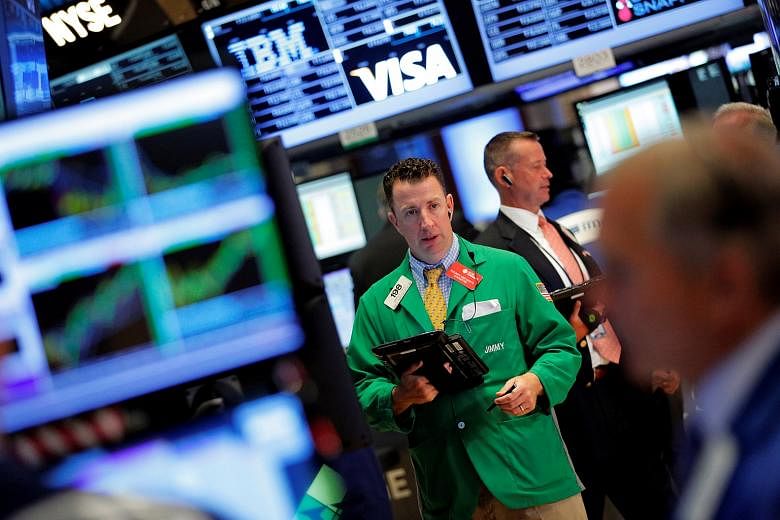LONDON • Fear of instability in the European Union and of decades of global stagnation sent stock markets sharply lower yesterday.
After a steadier few days as investors digested the shock of Britain's vote to leave the EU, the implications of another round of financial losses, interest rate cuts and central bank money-printing to prop up growth have begun to set in.
The suspension of a handful of British property funds, a reflection of concerns that the country's real estate market could sink in the wake of Brexit, was the trigger for a new wave of selling of sterling and UK assets.
A current account gap of a huge 7 per cent of national output makes Britain and the pound highly vulnerable to any halt in the investment that has flooded into London property markets from Russian and Chinese investors in recent years.
Markets in Japan and South Korea led Asia lower, with the Nikkei and the Kospi both losing about 1.8 per cent. Financial markets in Singapore, Malaysia, India and Indonesia were closed for public holidays.
Indexes in Frankfurt, London and Paris were all down by around 2 per cent by midday and the European banking index - a major focus of concern this year - fell by as much as 2.7 per cent.
Wall Street opened lower by 0.31 per cent, falling to 17,785.08 points.
The yield on Japan's 20-year government bond fell below zero for the first time ever as investors ran for safety.
Government debt in Germany now returns less than nothing for the next 15 years, essentially suggesting that there will be no inflation or economic growth in that period. In Switzerland, yields are at zero for the next half-century.
Oil fell to a one-week low as investors fled to safe haven assets such as gold and the Japanese currency. Futures fell 1.2 per cent in New York, taking the loss for the week to 6 per cent.
Gold surged to a two-year high and the yen rose to its strongest level this month after Bank of England governor Mark Carney said risks from the Brexit vote had started to crystallise.
The bond market reaction is the clearest signal of how investors are interpreting the economic hit from Brexit - yet another shock to a vulnerable global economy, another wave of central bank easing and possibly the starting gun for a new round of currency, tax and even trade wars.
Also, analysts expect Treasury yields to continue their decline and for the coupon curve to flatten.
China, which has been steadily weakening the yuan while eyes are fixed on Europe, allowed the value of its currency against the US dollar to fall to another 51/2- year low overnight. That helped Shanghai's stock market remain in positive territory.
In Europe, the big concern is how banks will cope with yet lower interest rates and writedowns in the value of assets they hold, as well as a new blow to growth that might cool borrowing and threaten even more loan defaults.
Italy's bank sector index has fallen 30 per cent since Britain voted on June 23 to quit the EU, bringing its losses so far this year to 57 per cent. The euro zone banking stocks index has also plunged.
REUTERS, BLOOMBERG

